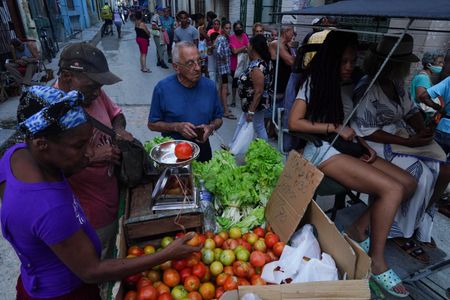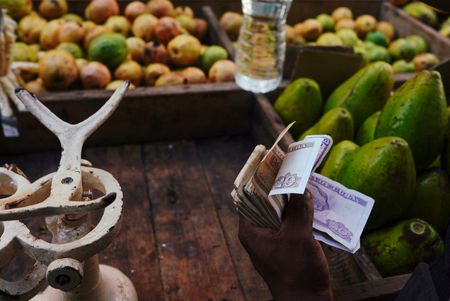By Marc Frank and Nelson Acosta
HAVANA (Reuters) – Crisis-hit Cuba on Monday forecast economic growth of 3% for 2023 and reported 2% in 2022, half of what it had previously predicted and down 8% from the pre-pandemic level.
This year has proved tough for most Cubans, who had already suffered as a result of two years of pandemic lockdowns, raging inflation and food, medicine and other shortages.
Daily blackouts have disrupted lives and the economy, while fuel and parts shortages have gutted public transportation.
Economy Minister Alejandro Gil told Cuba’s National Assembly that inflation was forecast at 31% for 2022, from 77% in 2021.
However, Pavel Vidal, a former Cuban central bank economist who is now based in Colombia, said that underestimated reality “because the official CPI under-represents the private markets and the informal market.”
Vidal estimated inflation at 200%, with two other Cuban economists agreeing it was in triple digits.
Gil also told the year-end session of the Assembly that growth was fueled by a modest increase in tourism and free social services from pandemic lows in 2022, while manufacturing and agricultural in general continued to stagnate and decline.
He said the COVID-19 pandemic had gutted key dollar earner tourism after the Trump administration imposed new sanctions aimed at foreign investment and trade, tourism and remittances.
While Gil projected tourist arrivals at 1.7 million in 2022, this compared with 2.5 million which had been forecast but represented an increase on the 360,000 who came to the island last year. He said arrivals would reach 3.5 million in 2023.
A record number of Cubans have left the island this year, with some 250,000 entering the United States according to U.S. government statistics, the majority crossing over the Mexican border after flying to third countries such as Nicaragua.
Gil said price instability in food, oil and shipping was further cutting into the Communist-run country’s international buying power.
The government has said imports fell around 30% and exports 45% in 2021 compared with levels in 2018.
Gil projected hard currency income would increase by around $1 billion next year, without giving further information on international trade or Cuba’s debt, which the government last reported as being $19.6 billion in 2019.
(Reporting by Marc Frank and Nelson Acosta; Editing by Alexander Smith)


